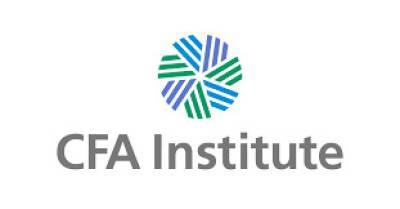MUMBAI, 25 November 2021: CFA Institute, the global association of investment professionals, has called for a concerted effort from Indian Banks, Venture capital (VC) investors, multilateral development institutions, and Indian policymakers, towards catalysing private capital for sustainable agriculture.
Agriculture, which is primary source of livelihood for about 58% of India’s population and contributes to global food security as one of the major producers of agro-commodities is particularly vulnerable to climate change, says"Financing Sustainable Agriculture in India: Opportunities, Challenges, and the Way Forward"report by CFA Institute in partnership with Climate Bonds Initiative.
CFA Institute organised a webinar on “Financing Sustainable Agriculture in India” where Sandeep Bhattacharya, India Project Manager, Climate Bonds Initiative and Sivananth Ramachandran, Director, Capital Markets Policy India at CFA Institute presented findings from their report on "Financing Sustainable Agriculture in India: Opportunities, Challenges, and the Way Forward". They also discussed with eminent market practitioners, Shalini Chhabra, Managing Partners, 3i Partners; Patrick d’Huart, Senior Business Development Manager, Symbiotics and Hari Rajagopal, Vice President- Capital Markets & Strategic Initiatives, Samunnati Capital Markets, on how they contribute towards the transition to climate-smart agriculture in India.
Speaking on topic Vidhu Shekhar, CFA, CIPM, Country Head, India, CFA Institute said,“The recent COP26 climate summit in Glasgow, on Sustainable Agriculture Policy Action Agenda and Global Action Agenda for Innovation in Agriculture, hashighlighted the need of making farming more sustainable and less polluting.In India, we have a National Mission for Sustainable Agriculture (NMSA), which aims to evolve and implement strategies to make Indian agriculture more resilient to the changing climate. However, to transition to more sustainable practices, farmers will need better policy, better tech, and more access to capital. Through this report, the authorsSivananth Ramachandran (CFA Institute) and Sandeep Bhattacharya (Climate Bonds Initiative)have addressed these various facets of climate-resilient agriculture andhaveput downour recommendations for a concerted effort from various stakeholders towards catalysing private capital for sustainable agriculture”.
In its recommendations, the report suggests four important points for policymakers and stakeholders for scaling up financing in sustainable agriculture projects:
Develop a taxonomy for sustainable agriculture: A consistent and comparable taxonomy of activities, calibrated against physical risks from climate change, which will constitute “sustainable agriculture.”
Address training and capacity needs of stakeholders: Applicable to farmers and workforce of financial institutions on how to conduct due diligence on sustainable agriculture projects and track social impact outcomes
Provide state government support for basic research in climate resilient agriculture: State governments can sponsor additional research, especially long-horizon studies on the benefits of sustainable agriculture practices compared with conventional methods, to enable greater adoption among institutions and FPOs.
Leverage data and technology to increase formalisation of AgTech sector:A reason for low levels of bank lending is that many farmers lack credit history. If data were shared between AgTech firms (which work with farmers) and banks, this could lead to better credit evaluation and reduce the cost of loans
“The impact of climate change is increasingly evident. The frequency and intensity ofheavy downpours, hurricanes, and heat waves in places where this previously was not conceivable have made it necessary not only to limit carbon emissions but also to adapt to changes that are already occurring and likely to worsen in the future.Agriculture is particularly vulnerable to climate change, in terms of yields and nutritional content of grains.Therefore, financing the transition to sustainable, or climate-resilient, agriculture is vital”,adds Sivananth Ramachandran, CFA, CIPM, Director,Capital Markets Policy, India, CFA Institute.
The reportexplores the Agriculture, Forestry, and Land Use (AFOLU) landscape in India, impact of climate change on agriculture, examines various facets of sustainable agriculture, and provides several recommendations for policymakers and other stakeholders to catalyse financing at a larger scale. Italso explains various models for financing sustainable agriculture including Blended finance, Green bonds, and VC funding in disruptiveAgTech innovations.




















